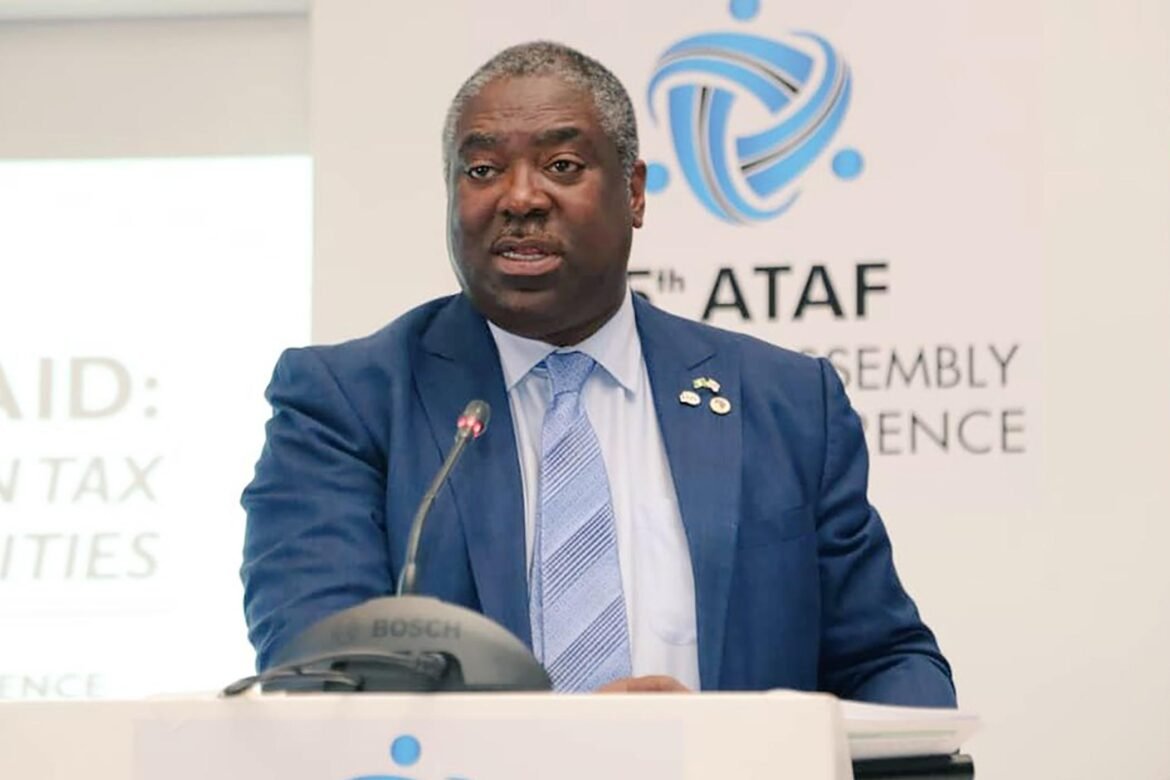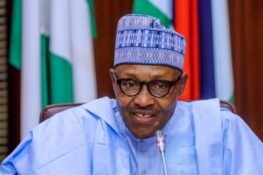John Galbraith characterised the affluent society in part as the showpiece of the promise of capital in the post-industrial age.
Once normalcy had been restored to America’s economic climate after the Great Depression of the 1930s on account of optimised production cementing her prestige as the wealthiest nation on earth, the acutely perceptive scholar often hailed as the “father of liberal economics in America” noted that certain indulgences would be inevitable.
It was no longer enough to just get employed to afford a roof over your head and two cars in the garage for the family; the new average American worker would also prefer a job that brings more personal fulfillment in the over-arching pursuit of pleasure.
For most folks, there was a new shared sense of contentment in that the rising economic tide lifted their individual boats.
Futuristically, Galbraith then postulated that what would be expected of the state is to foster social balance by deploying fiscal and monetary policies with a view to bridging the gulf of inequalities.
With BVN, it is very easy these days to track who owns what figures anywhere in the banks. The code of anonymity is thus broken
Of course, the policy option pursued by the presiding political party is a direct reflection of its own core values.
Against the backcloth of the recent discovery in Nigeria of a vast tribe of mute billionaires across the country with vast fortunes locked down in bank vaults (a good number with little or no visible source of income), Galbraith’s theoretical template would then sound more like a vacuous abstraction here indeed.
The shock find was enabled by technology.
Working with banks and other financial institutions, the Federal Inland Revenue Service (FIRS) reported that these stinkingly rich Nigerians had always operated outside the tax net.
But with BVN, it is very easy these days to track who owns what figures anywhere in the banks. The code of anonymity is thus broken.
As the story goes, several hundreds of such accounts had cumulative turn-over in billions of naira without evidence of the owners paying any form of tax.
Even on ethical grounds, the question of the affluent evading tax can never be excused. Nothing could be more provocative, more unfair to relatively less well-off ordinary workers in both public and private sectors made to part with a chunk of their wages in PAYEE (Pay As You Earn) monthly.
Indeed, under Tunde Fowler, FIRS has shown more efficiency in haunting tax evaders
Their plight provides a perfect illustration of the proverbial dysfunctional trap that catches small preys and lets the big ones escape.
It is, therefore, very doubtful if the nation’s proletarian class who had borne the tax burden over the years would object to any crackdown FIRS might be plotting on the secret billionaires in the times ahead.
Indeed, under Tunde Fowler, FIRS has shown more efficiency in haunting tax evaders. It probably explains why figures generated by the service has almost doubled within three years (from N3trn in 2016 to N4trn in 2017 and N5.3trn in 2018) at a time when the national economy was supposed to be contracting due to the severe recession of 2014/2015.
Even more significant is that the revenue has averaged a ratio of 40 per cent to oil sector and 60 per cent to non-oil receipts during the period, indicating the potential of the national economy beyond perennial over-reliance on the oil mineral.
Well, only those unfamiliar with the story of Lagos in the last two decades would be entirely surprised at the recent quantum leap in FIRS’ returns.
The same Fowler was the architect and enforcer of the blueprint that grew Lagos’ IGR (internal generated revenue) from a paltry N600 million in 1999 to N8bn by 2007 and N20bn by 2015.
So, the prodigious “Lagos boy” would now seem to have found a wider canvass to express himself, deploying technology to plug leakages and cut costs.
But while Abuja would be too glad to have Fowler rake in more trillions in the years ahead to sustain its voracious consumption, the enduring challenge remains: how do we dismantle the monstrosity of a rentier system that had aided and abetted a thousand billionaires to game the system without paying tax for so long?
The same Fowler was the architect and enforcer of the blueprint that grew Lagos’ IGR (internal generated revenue) from a paltry N600 million in 1999 to N8bn by 2007 and N20bn by 2015
We cannot, in good conscience, attempt to answer this question without first addressing the issues of disincentives to local production.
Of course, among the referenced nocturnal rich would be found career middlemen and emergency briefcase contractors who exploit access to political power to make cheap money which, in turn, is warehoused as fixed deposits in banks in the mindless quest for double rents.
They become rich not necessarily by producing like Dangote. By amassing wealth without labour, they stand guilty of one of the seven deadly “social sins” identified by Mahatma Gandhi. Not paying tax only doubles the iniquity.
For, in the classical definition of economics, tax is supposed to be the primary oxygen that nourishes the society.
So, the idle rich and rent-seekers are like leeches. Their lack of exertions by not engaging in the production of goods or services robs the society of the basis to levy tax, thereby denying an opportunity to foster the sort of “social balance” Galbraith mooted.
Part of Nigeria’s own distortion is graphically reflected by the revenue distribution itself. According to statistics, Lagos accounts for a whopping 70 per cent of the N5.3 trn generated by FIRS in the 2018 financial year.
Without FIRS continuing to push the frontiers elsewhere, we will never be in a position to know what is available to tax
To accept the foregoing figure without question is to endorse the fiction that such represents a true picture of wealth creation or potential in the country.
Of course, this is not true. The other states have potentials to create wealth and add to the common pool. For those with comparable advantage in agriculture, for instance, opportunities available for processing in the value chain remain largely unexploited.
But without FIRS continuing to push the frontiers elsewhere, we will never be in a position to know what is available to tax.
And without working to bring a semblance of parity to what everyone brings to the table, Lagos will continue bemoan gross injustice since it does not get 70 per cent share of the tax earnings at the end of each month.
Overall, to an extent, it is however difficult to blame the secret billionaires reluctant to invest their fortune in production in an environment where critical factors like energy are not guaranteed.
This affliction accounts for the rapid de-industrialisation of the nation in the past four decades.
Also, the worsening security situation across the land that has forced most companies involved in field operations to factor in the cost of hiring vigilante or militia men for protection, compounds an already bad situation.
Indeed, billions of dollars sunk into the electricity sector in the last two decades is yet to deliver stable power in Nigeria, leaving a nation of 200 million population with less than 7,000 megawatts.
On top of its notoriety as the biggest importer of refined petroleum products despite being the sixth largest oil producer, the country is also arguably now the largest market in the world for generator marketers on account of epileptic electricity supply.
Truth be told, there is no way goods manufactured in Nigeria can compete favorably with those imported in view of present prohibitive costs of running generators as alternate power source.
Were light stable, for most entrepreneurs, production costs would be down by at least fifty percent.
Without working to bring a semblance of parity to what everyone brings to the table, Lagos will continue bemoan gross injustice since it does not get 70 per cent share of the tax earnings at the end of each month
Vice President Yemi Osinbajo, therefore, struck the right chord in his last Workers Day address by admitting that the deficit in the energy sector constitutes a major clog in the wheel of Buharinomics. Of course, that is putting the nuisance of nation’s rickety DISCOs today mildly.
A decade ago, part of the promise of the power sector reforms was greater efficiency.
But the Jonathan administration only succeeded in making a mockery of the privatisation exercise as cronyism, rather than competence, became the sole criterion for signing the power distribution franchise away.
So, wheeler-dealers who knew little or nothing about even mere cable now found themselves managing the complexity of power distribution. Hence, the disaster the nation has witnessed since.
Indeed, the first critical step to re-industrialising the nation is fixing the energy sector.
Only then will there be more opportunities for sales tax more than income or property tax, as Galbraith had proposed for the sustenance of the affluent society.
So, Tinubu Doesn’t Own Oriental?
Some inconvenient facts are invariably being exposed by the financial headwinds currently buffeting Wempco, the premier steel company owned by the Chinese.
According to reports, a raft of policy reversals by the Nigerian government plunged the import-dependent multinational into the red such that several thousands of jobs are now threatened.
But the tabloid angle to the deepening adversity is the resolution by the gasping corporate titan to offload its pearl in the hospitality sector, the Oriental Hotel (a five-star resource nestling the Lekki side of the lagoon in Lagos) for a whopping $250m (N90bn) to save the entire group from sinking.
For those addicted to media gossip, that revelation must have come as a rude shock indeed. For, part of the negative profiling of Asiwaju Bola Tinubu in the last 12 years by political adversaries is the consistent retailing of the false narrative that the hotel is his.
Perhaps the few objects or spaces in Lagos whose ownership have not been traced to Tinubu yet would include the notable cemeteries and the Atlantic Ocean that straddles Lagos State
Such reading seemed reinforced by the decision of the hotel management to name one of its lounges after the former Lagos governor at take-off.
So, overall, perhaps the few objects or spaces in Lagos whose ownership have not been traced to Tinubu yet would include the notable cemeteries and the Atlantic Ocean that straddles Lagos State.
In fact, when the for-sale tag was first sighted over the towering hotel on some online platforms soon after the recent general elections, the easy conclusion of the usually resourceful gossip media was a screaming headline that Jagaban, who was co-chairman of the Buhari Campaign, had become broke ipso facto.
So, one of such platforms declared, with authority, even if without investigation, that he had decided to auction the pleasure castle to regain his financial breath.
Oh! Maybe Jagaban’s forebears actually descended from a remote province in China and the folks at Wempco, who have been in business in Nigeria for 40 years, are his alter ego after all.
Surely, a liar’s mouth never bleeds, as they say.







